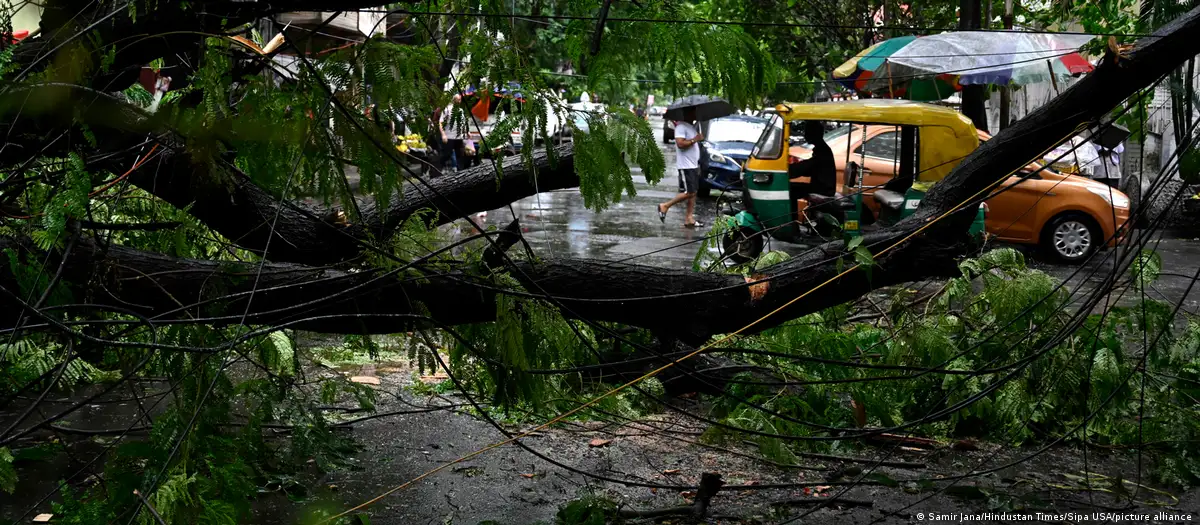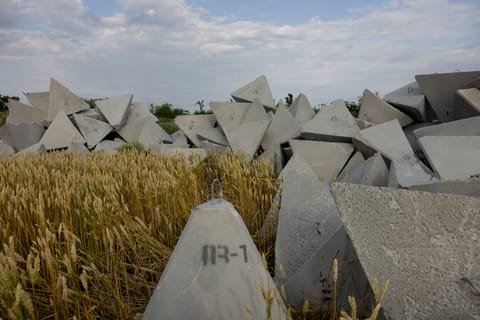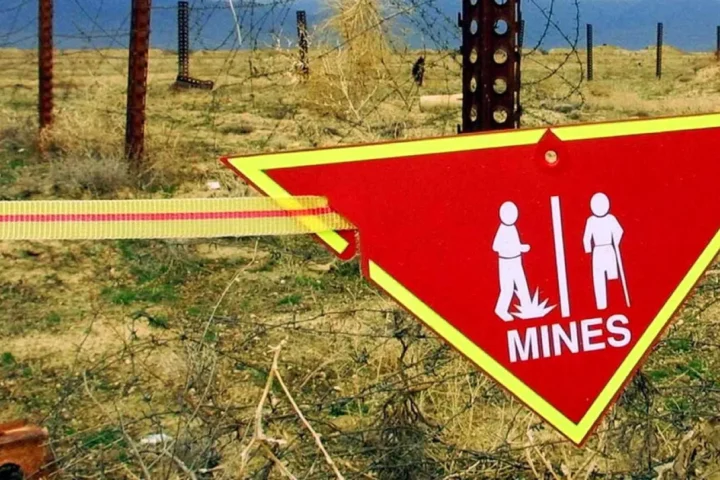The deadly cyclone Remal, which has already claimed lives in coastal India and Bangladesh, has now caused a quarry collapse in the remote Indian state of Mizoram.
Torrential rain brought on by cyclone Remal caused a stone quarry in northeast India’s remote Mizoram state to cave in on Tuesday, killing at least 12 people.
Several more remain trapped in Melthum, the site of the quarry outside the state capital of Aizawl, authorities said, without specifying a number. Mizoram Chief Minister Lalduhoma offered compensation to families of the victims.
The Associated Press news agency reported that 13 people were killed, while another 16 remained missing.
Senior police officer Rahul Alwal said rescuers were able to pull out two workers alive from the debris.
Landslides hamper rescue efforts
Meanwhile, harsh weather from the storm is hampering efforts to rescue those trapped.
“There have been incessant rains in the wake of cyclone Remal, which led to the quarry collapse,” an official told the Reuters news agency, speaking on condition of anonymity.
Indian news channel NDTV reported that Aizawl was cut off from the rest of the country due to a landslide on National Highway 6 at Hunthar, citing officials. Several other highways and key roads in the state have also been disrupted by landslides, it added.
On Monday morning, India’s weather authorities had said the severe cyclone Remal would weaken over the day into a depression.
Remal’s destruction in India, Bangladesh
The powerful cyclone has already devastated coastal towns in India and Bangladesh, around the bay of Bengal, killing at least 16 people. Millions of people faced power failure.
Mizoram, which borders Bangladesh, has also experienced heavy rains and landslides due to the storm.
Bangladeshi weather experts on Tuesday said that cyclone Remal was one of the quickest forming and longest-lasting they had experienced, blaming climate change.
“In terms of its land duration, it is one of the longest in the country’s history,” Azizur Rahman, director of the state-run Bangladesh Meteorological Department told the French AFP news agency. He added that it had battered the country for more than 36 hours.







